A research showcase organized by students for students returned this January with the Arts & Science Students’ Union’s (ASSU) third annual Undergraduate Research Conference.
With presentations ranging from Democracy, Dictatorship and Discord to Illness and Cures, and the Classroom: Under the Microscope to Social Constructs and Consequences, students shared their work with faculty, fellow students and staff while celebrating the breadth of undergraduate research conducted across the Faculty.
This year, ASSU welcomed keynote speaker John Robinson, a professor at the Munk School of Global Affairs & Public Policy and the School of the Environment, and advisor to U of T President Meric Gertler on the environment, climate change and sustainability.
Robinson discussed his award-winning research on introducing sustainability to university campuses alongside a number of his undergraduate students.
Check out some of the student research projects:
Chronic Traumatic Encephalopathy (CTE) and American football — how much damage is being done?
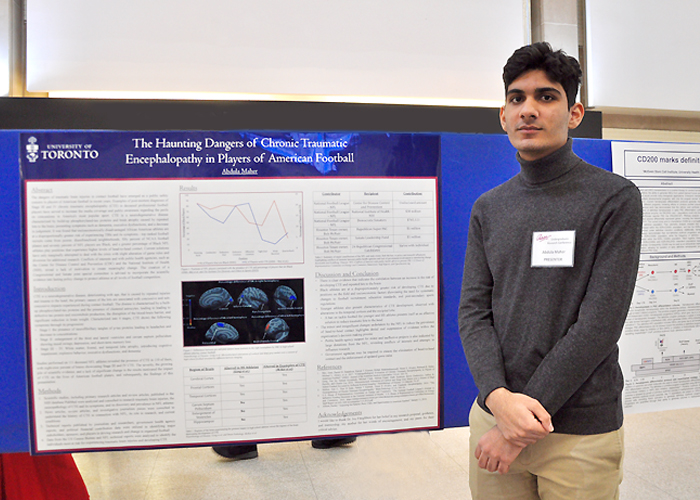
Second-year student Abdula Maher, a pathobiology specialist in the Department of Laboratory Medicine and Pathobiology and member of Trinity College, explored the prevalence of CTE in American football players. CTE is a neurodegenerative disease caused by repeated hits to the brain at high velocities — a standard occurrence in football. Maher says his project was a blend of scientific and social science research, looking to highlight the demographic groups most impacted by CTE, whether it’s only seen in athletes at the highest level of competition and what, if anything, is being done to combat the disease from the NFL down to the high school level.
Swipe Left on Sexism: Examining How Women are Perceived When Confronting Sexism Over Dating Apps
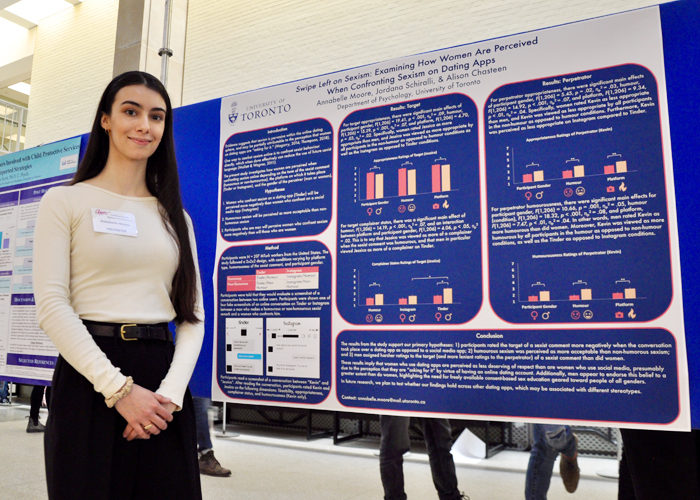
Annabelle Moore, a fourth-year psychology student and member of Victoria College, investigated how women are perceived when they confront sexism online. Moore analyzed how participants responded to one of four fake screenshots of a conversation in which a man makes a sexist comment and a woman confronts it as sexist on either Tinder or Instagram. Participants were asked to rate the man and woman on their likability, appropriateness, complainer status and, for the man, sense of humour.
“Women are viewed as less appropriate and assigned higher complainer status when they're confronting sexism on Tinder as opposed to Instagram and this effect is driven primarily by participants who are men,” said Moore. “One key implication of this research is that men may benefit from consent-based education more so than women, because women seem to have more experience identifying sexism and sexual harassment.”
Can face processing patterns help identify mental health issues?
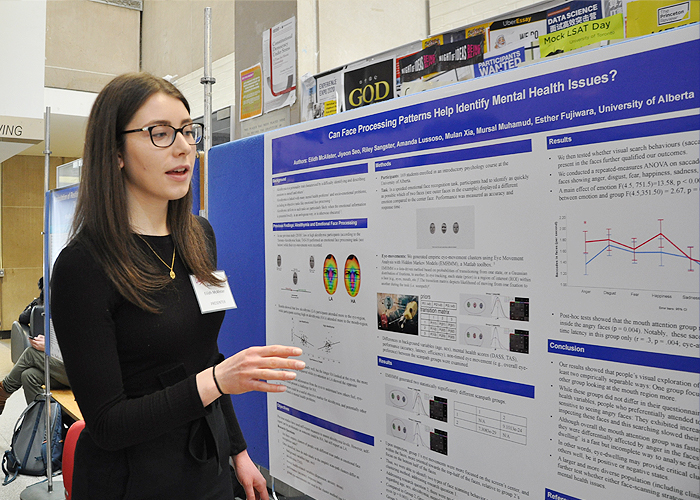
Eilidh McAlister, a fourth-year member of Trinity College who is majoring in psychology and minoring in immunology and physiology built off of existing research about alexithymia — a difficulty identifying and describing emotions. McAlister researched if face processing patterns — a major aspect of social cognition defined as an individual's visual interpretation and understanding of facial expressions — could be indicative of mental health status.
McAlister says she wanted to present her research at the conference because it’s a great “opportunity to receive feedback and show research to people who’ve never seen it before. It’s also been a good exercise for me to synthesize what I’ve done.”
Optimizing episodic memory performance
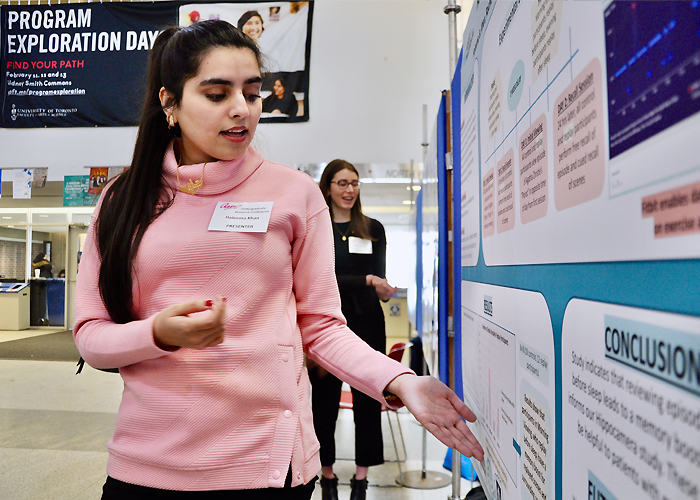
Fourth-year neuroscience and psychology major and member of Victoria College, Haleema Khan explored how to optimize episodic memories — the day-to-day recollections of a person’s experiences. An undergraduate in Professor Morgan Barense’s Memory & Perception Lab, Khan’s project is a spin-off study of Barense’s Hippocamera project — a smartphone app that combats memory loss due to aging or memory disorders like Alzheimer’s disease.
“This project really applies to all audiences because Alzheimer’s is so prevalent and it's really bound to affect at least someone we know,” said Khan. “I think it reaches beyond just a psychology audience because it's such a prevalent illness and memory is something that impacts everyone.”
Developing patient-specific bone marrow transplants
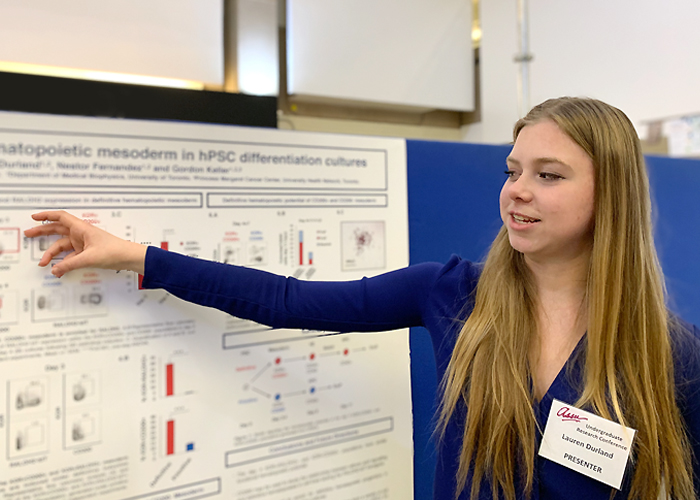
Lauren Durland, a third-year molecular genetics student and member of Trinity College, is trying to develop patient-specific bone marrow transplants. “We try to recreate what happens in a developing embryo in order to turn an embryonic-like, immature stem cell into a functional blood forming cell,” said Durland.
Durland says while her research may be challenging for those outside her discipline to understand, events like ASSU’s help prepare her for what a future in science might be like. “Being able to present and talk about your scientific work to a lot of different people is a really important skill to have. The more opportunities you can get the better.”

